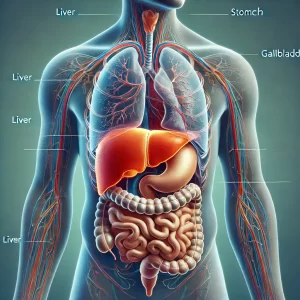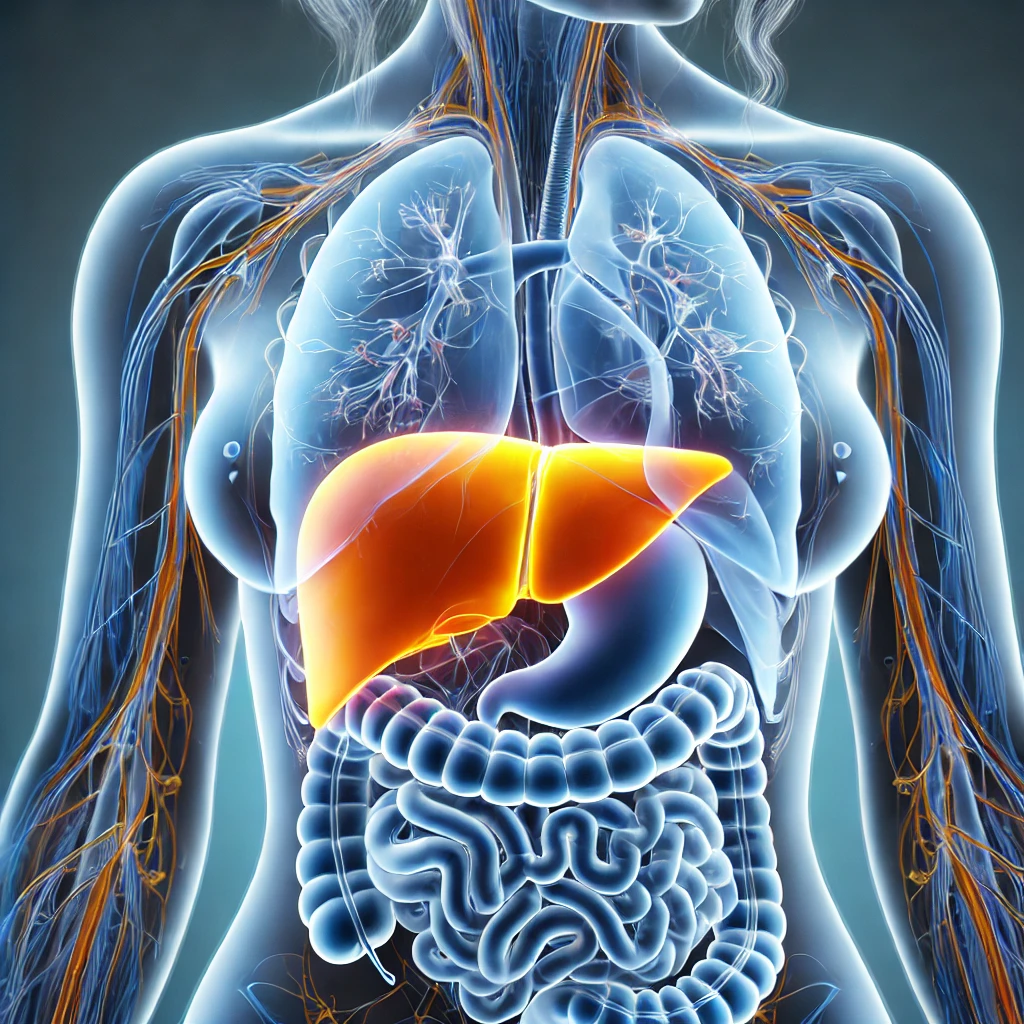
The Ultimate Guide to Maintaining Optimal Liver Health
Your liver is a silent hero working tirelessly to keep your body healthy. Discover how to care for this vital organ and maintaining optimal Liver health.
Understanding the Liver’s Vital Role
The liver is one of the largest and most essential organs in the human body. Nestled in the upper right quadrant of the abdomen, it performs a myriad of functions crucial for maintaining overall health
Functions of the Liver
The liver is a multitasking powerhouse responsible for:
Detoxification: Filtering and removing toxins from the bloodstream.
Metabolism: Processing nutrients from food, converting them into energy, and storing essential vitamins and minerals.
Protein Synthesis: Producing vital proteins that aid in blood clotting and other bodily functions.
Bile Production: Creating bile to help digest fats and absorb fat-soluble vitamins like A, D, E, and K.
Importance in Overall Health
A healthy liver ensures that your body efficiently processes nutrients, fights infections, and removes harmful substances. When the liver is compromised, it can lead to a cascade of health issues affecting various bodily systems.
Common Liver Diseases and Disorders
Understanding liver diseases is the first step in prevention and early detection.
Fatty Liver Disease
Fatty liver disease occurs when excess fat builds up in liver cells. There are two main types:
Non-Alcoholic Fatty Liver Disease (NAFLD): Often linked to obesity and poor diet.
Alcoholic Fatty Liver Disease: Caused by excessive alcohol consumption.
Hepatitis
Hepatitis is inflammation of the liver, commonly caused by viral infections:
Hepatitis A: Usually spread through contaminated food or water.
Hepatitis B and C: Transmitted through blood and bodily fluids, can become chronic and lead to serious liver damage.
Cirrhosis
Cirrhosis is the scarring of liver tissue, resulting from long-term damage. Causes include chronic alcohol abuse and prolonged hepatitis infection.
Liver Cancer
Primary liver cancer originates in the liver cells. Risk factors include chronic hepatitis infections and cirrhosis.
Risk Factors Affecting Liver Health
Several factors can increase the risk of liver disease.
Alcohol Consumption
Excessive alcohol intake is a leading cause of liver damage. The liver metabolizes alcohol, but overconsumption can overwhelm its capacity, leading to inflammation and scarring.
Poor Diet and Obesity
High intake of saturated fats, sugars, and processed foods contributes to fat accumulation in the liver, leading to NAFLD.
Viral Infections
Chronic hepatitis B and C infections cause ongoing inflammation, increasing the risk of cirrhosis and liver cancer.
Medications and Toxins
Overuse of certain medications like acetaminophen and exposure to environmental toxins can harm the liver.
Signs and Symptoms of Liver Problems
Early detection of liver issues can prevent severe complications.
Early Warning Signs
Fatigue and Weakness: Due to the liver’s reduced ability to process nutrients.
Loss of Appetite: Digestive disturbances affecting hunger.
Nausea: Resulting from toxin buildup.
Advanced Symptoms
Jaundice: Yellowing of the skin and eyes due to bilirubin accumulation.
Swelling: In the legs and abdomen from fluid retention.
Dark Urine and Pale Stools: Indicating bile flow obstruction.
Itchy Skin: From bile salt deposits under the skin.
Strategies for Promoting Liver Health
Implementing lifestyle changes can significantly improve liver function.
Healthy Diet Choices
Foods to Include
Leafy Greens: Spinach and kale enhance detoxification.
Fruits Rich in Antioxidants**: Berries and grapes protect liver cells.
Healthy Fats: Avocado and nuts reduce fat accumulation.
Whole Grains: Brown rice and oats support metabolic functions.
Foods to Avoid
Processed Foods: High in additives and preservatives.
Sugary Drinks: Excess sugar can lead to fatty liver.
Excessive Salt: Can cause fluid retention.
Regular Exercise
Physical activity helps maintain a healthy weight, reducing fat buildup in the liver.
Limiting Alcohol Intake
Moderation is key. For those with existing liver conditions, abstinence may be necessary.
Safe Medication Practices
Follow Dosage Instructions: Avoid exceeding recommended amounts.
Consult Healthcare Providers: Before starting new medications or supplements.
Vaccinations
Vaccines for hepatitis A and B can prevent infections that lead to liver disease.
Natural Remedies and Supplements
Certain natural substances may support liver health.
Contains silymarin, which has antioxidant properties that may protect liver cells.
Alpha Lipoic Acid (ALA)
protects and restores liver cells, boosts glutathione production, and restores liver enzymes for healthy liver function.
Brussels Sprout powder
acts as a powerful antioxidant to boost cellular protection.
Wasabi Root powder aids in the removal of unwanted toxins in the liver
Other Beneficial Supplements
Turmeric Curcumin in turmeric has anti-inflammatory effects beneficial for the liver.
Green Tea Extract: Rich in antioxidants.
Garlic: May reduce liver fat content.
Note: Always consult a healthcare professional before starting any supplement regimen.*
Importance of Regular Medical Check-Ups
Early detection of liver issues can lead to better outcomes.
Liver Function Tests
Blood tests can assess enzymes and proteins indicative of liver health.
Imaging Tests
Ultrasound: Detects fatty liver and tumors.
CT and MRI Scans: Provide detailed images for diagnosis.
Conclusion
Maintaining liver health is essential for overall well-being. By understanding the liver’s functions, recognizing risk factors, and implementing healthy lifestyle choices, you can ensure this vital organ continues to perform optimally. Regular medical check-ups and being proactive about liver health can prevent complications and promote longevity.
Take charge of your liver health today for a healthier tomorrow.

Also See-Unlocking-health-benefits-intermittent-fasting-and-autophagy-explained
